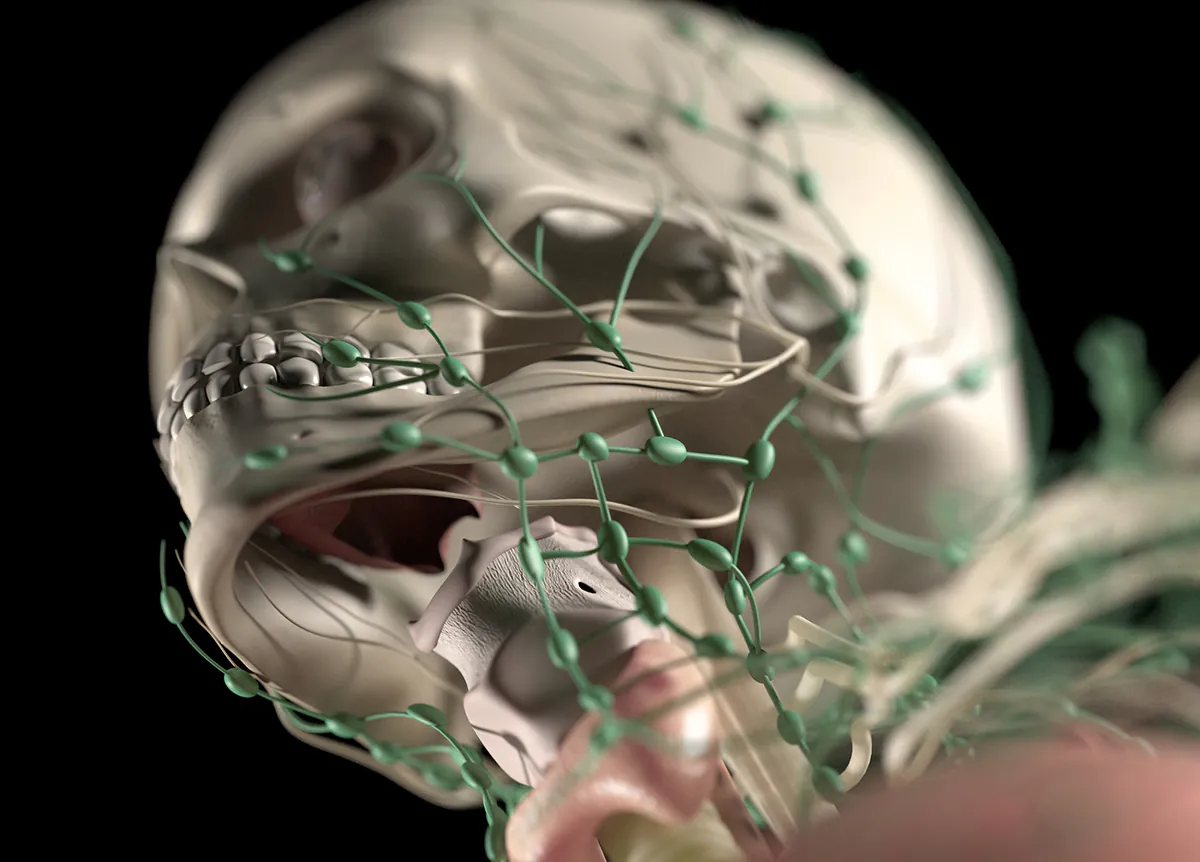Stellate Ganglion Blocks
Calming anxiety and fear-based responses. Get your life back.
What is a Stellate Ganglion Block (SGB)?
Stellate Ganglion Blocks are precise, ultrasound-guided injections aimed at the sympathetic nerve bundle in the neck. It is a natural, safe treatment that NW Regen couples with compassionate care and a tailored, personal approach to helping patients.
These life-changing blocks are instrumental in managing a range of mental health conditions, including PTSD, PTSI, anxiety, panic attacks, and depression as well as pain from traumatic brain injury (TBI) and symptoms patients experience from Long COVID — by modulating the body’s stress response.
Why is NW Regen the best place for SGBs?
NW Regen is a leader in the field of SGB injection therapy. Dr. Ryan Wood has specialized in this minimally invasive treatment since 2017 – having completed 2,000+ SGB procedures. He lectures domestically and internationally, while also providing hands-on physician training globally to those wishing to learn this incredible modality.
What conditions do SGB injections treat?
- Anxiety and/or Work-related stress
- Post-Traumatic Stress conditions (PTSD/PTSI)
- Traumatic Brain Injury (TBI)
- Long COVID symptoms
- Chronic Fatigue Syndrome (CFS)
- Dysautonomia
- Postural Tachycardia Syndrome (PoTS)
- Parosmia (distortion of smell)
- Anosmia (loss of smell)
- Sleep problems and nightmares
- Postpartum depression
- Complex Regional Pain Syndrome (CRPS)
- Reflex Sympathetic Dystrophy (RSD)
- Compartment syndrome
- Causalgia from nerve injuries
- Autonomic dysfunction of the upper extremity
- Herpes zoster infection (or “shingles”) affecting the head, neck, arm or upper chest
- Phantom limb pain
Why finding experienced experts matters.
It’s about ensuring the utmost accuracy and safety in every treatment.
NW Regen is a pioneer and recognized leader in Stellate Ganglion Block (SGB) treatments on the west coast, serving a diverse community of patients from across the US, Canada, and beyond.
We cannot emphasize enough the critical importance of expertise and precision in these procedures. Our extensive experience underscores our commitment and established position as leaders in this field.
Utilizing ultrasound or fluoroscopy for injection guidance is non-negotiable for us. Adhering to the highest standards of best practice, our team utilizes ultrasound technology — the gold standard for visualizing anatomy, monitoring blood flow, and guiding each injection with the highest level of care.

Why working with NW Regen is your best option.
How NW Regen performs SGBs is unique.
Our process begins with an in-depth, hour-long consultation to review your health history and discuss your needs. This ensures a full understanding of the procedure, what you can expect afterward, and any other concerns you may have.
During each session, we conduct a thorough “Dual Sympathetic Reset” or “DSR,” targeting both the C3 and the C6 levels for a more comprehensive treatment than typically offered — most clinics focus solely on the C6 level.
Our approach is designed to inform and involve you at every step of the way, ensuring a treatment plan that’s as unique as you are.
Our team supports you before, during and after treatment.
We provide a tailored, personal approach to helping patients, with direct doctor-to-patient consults, special expertise in SGB procedures, and recommendations for additional treatments for post-traumatic stress-related injuries.
Because of our vast experience in this area, we’ve developed a support network of additional practitioners and other resources for a broader spectrum of care.
This team approach, combined with the SGB procedure, can be extremely beneficial for post-traumatic-stress injuries.
Stellate Ganglion Block (SGB) FAQs
How do Stellate Ganglion Blocks work?
Stellate Ganglion Blocks (SGBs) have the ability to “reset” the nervous system to a pre-trauma state, similar to rebooting a computer. When we inject an anesthetic (using an ultrasound for visual guidance), it blocks the nerve highway that carries information responsible for triggering fear and anxiety-based responses.
At NW Regen, we use a dual block, or cervical sympathetic blockade, as a more complete block to offer the best evidence-based care for the treatment of post-traumatic stress. That means we treat the upper cervical ganglion as well as the lower cervical ganglion during each session.
Stellate Ganglion Blocks are effective at creating an immediate reduction in symptoms and a lasting calm that opens up a window of opportunity where other treatments, including behavioral therapies, can provide complete healing.
We often encourage patients to use this treatment as part of a full program with a behavioral health care specialist.
How are Stellate Ganglion Blocks performed?
What is Horner's syndrome and how is it connected to SGBs?
A successful SGB can cause a Horner’s syndrome – a group of temporary symptoms “on the side of the injection.” These symptoms will disappear shortly after the anesthesia wears off. Depending on the type of anesthesia used, it may be roughly 45 minutes to 4 hours before symptoms of a Horner’s response go away.
Horner’s syndrome can include drooping of the upper eyelid, constriction of the pupil, appearance of a sunken eye, lack of facial sweating, redness of the white part of the eye, stuffy nose, and/or increased skin temperature on the side of the injection.
What effects might I experience from the block?
People experience other symptoms besides a Horner’s Syndrome following a block. These symptoms do NOT affect the outcome of a good block. They are simply the result of an incidental block to other nerves near the stellate ganglion and occur in as many as 50% to 60% of patients.
These symptoms are temporary and can include trouble swallowing, a lump in the throat, or hoarseness, and they go away just like Horner’s syndrome.
How often do I need to repeat the injections?
What will I experience later on?
How long has this procedure been around?
What do I need to know about payments and billing?
Stellate ganglion blocks are not typically a covered specialty. However, we provide you with superbills that contain a breakdown of procedures performed, all diagnostic coding, and any documentation you may need to submit to your insurance provider.

